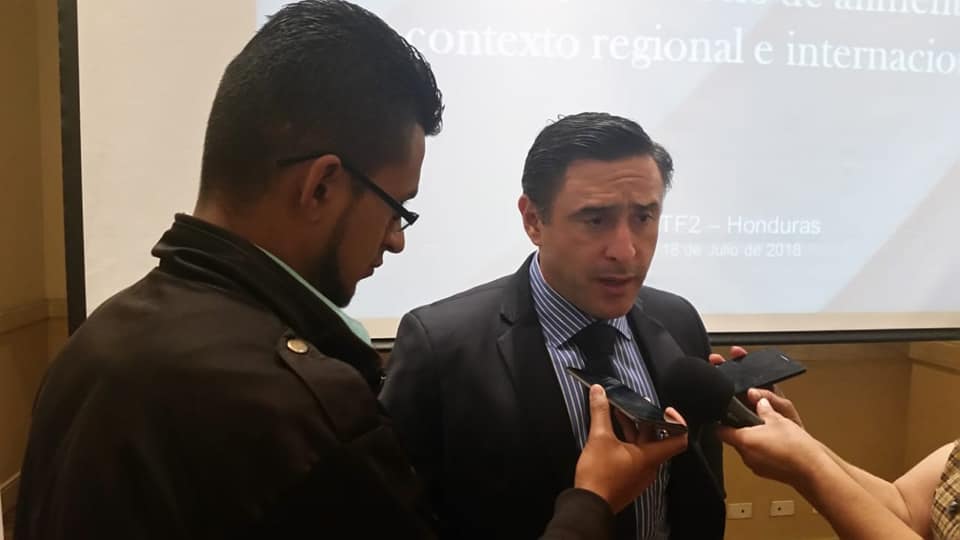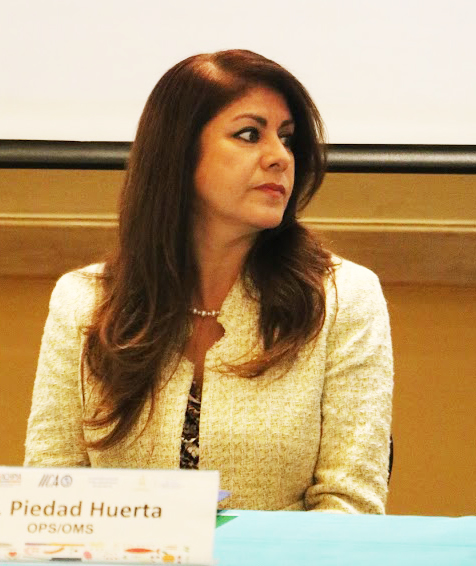The CCLAC Region - Regional Coordinator Ecuador
In 1976 a Coordinating Committee for Latin America, established by the 10th Codex Alimentarius Commission in 1974, held its first meeting in Rome with eight countries from the region in attendance. At its third session a proposal was made to change the name of the committee to its current form (Coordinating Committee for Latin America and the Caribbean) as this better reflected the membership of the region. In 1984 at its 31st session, the Executive Committee, acting on behalf of the Commission, agreed to this change.
The region of Latin America and the Caribbean is an important actor in the production and trade of food at a global level. The region produces enough food to supply itself and to export, with both water and land resources to produce even more.
The region has enormous natural wealth, a flourishing agricultural industry and a family farming sector that is essential for its population. The promotion and strengthening of food safety must be continued at the level of all regions to guarantee the health of consumers and fair and equitable trade.< /p>
The coordinator, Ecuador is based in AGROCALIDAD an agency attached to the Ministry of Agriculture and Livestock. They aim to create synergies between countries in the region, to provide mutual support in order to overcome regional problems and examine solutions to common challenges.
The coordinator further aims to strengthen collaboration among countries and strengthen the participation of developing countries in the Commission and its subsidiary bodies.
CCLAC Coordinator
All information on Codex is public and free.
For regional enquiries contact:
CCLAC Secretariat
Agencia de Regulación y Control Fito y
Zoosanitaria AGROCALIDAD
Avenida
Eloy Alfaro y Amazonas
Quito
Email: [email protected]
Codex Trust Fund 2 project launched in Honduras
Honduran officials of the Ministry of Economic Development, the Ministry of Agriculture and Livestock, the Ministry of Health, the Agency for Health Regulation and the Honduran Organization of Normalization joined the national Codex Contact Point and others in Tegucigalpa to announce the start of a Codex Trust Fund 2 project. On 18-19 July two events were held to launch the efforts to strengthen food safety and international trade: a launch event complete with the signing of an inter-institutional Letter of Understanding for the Strengthening of National Codex Alimentarius Subcommittees and a technical workshop.

Héctor Ferreira, Ministry of Agriculture and Livestock
"We are very honoured, because of the 32 applications worldwide, Honduras was the only country in the Latin American region selected as beneficiary by the Codex Alimentarius Trust Fund, which is the result of the joint work of the different member institutions of the National Committee in preparing and presenting a robust proposal," said Héctor Ferreira, Ministry of Agriculture and Livestock, emphasizing that the active participation of all the institutions is key to a successful project and an international model.
Ricardo Paz, Director General of SENASA, said that the next three years will see many challenges, and Honduras is firmly committed to achieving the objectives set and implementing systematic measures to lay the foundations of a national Codex structure as well as establishing its sustainability. "We are aware that CTF2 in Honduras is a first achievement for the country and its implementation entails great responsibility to respond to global expectations," Paz said.

Piedad Huerta (left), Representative of Pan American Health Organization (PAHO) in Honduras, highlighted in her keynote speech the importance of the Codex Alimentarius, the national commitments that must be made for the successful implementation of the CTF2 project, as well as other public health issues, such as the actions necessary in the country to combat antimicrobial resistance.
After the launch, a technical workshop was held in which experts from the Codex Alimentarius Office of the United States, the Chilean Agency for Food Safety and Quality (ACHIPIA) of Chile, PAHO and the Institute Inter-American Cooperation for Agriculture (IICA) shared their experiences in working with Codex standards and promoting food safety.
Among the issues addressed was the coordination and minimum conditions necessary among the public sector, private sector, academia and consumers for an adequate structure and management, as well as the importance of science in developing food regulations.
Read more http://senasa.gob.hn/







Leave a comment